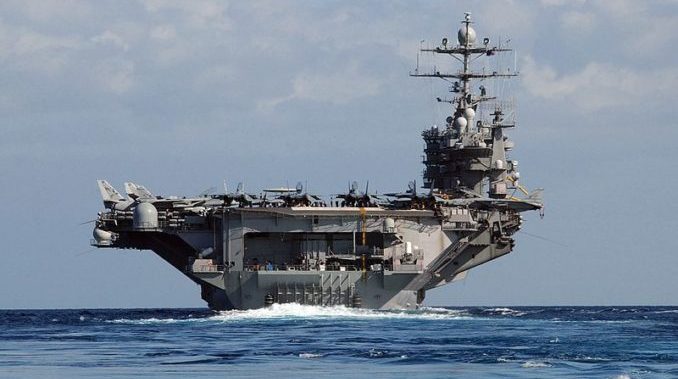
Generals, the adage goes, are always fighting the last war. The saying is incorrect. All worthwhile generals do, in fact, analyze recent conflicts to determine what information can be gleaned about preferred tactics and combat strengths, but they also tend to gather information about recent developments and strategize based on those details. A good general isn’t fighting the last war; they can, instead, explain how the last conflict could have been won and present hypothetical cases for the next one.
Generals aren’t always fighting the last war. Bad generals are.
In March, a Cybersecurity Readiness Review was provided to the Secretary of the Navy. It had been commissioned by Secretary Richard Spencer on October 18, 2018 and empowered a group of military and civilian experts to both conduct a comprehensive examination of the Navy’s cybersecurity efforts and interview successful civilian agencies – typically Fortune 500 companies – about what has worked in their security efforts.
Some of the group’s recommendations were obvious; much of the fleet was found to be using, as their primary platform for shipboard activity, operating systems which were known to have significant security flaws. Old versions of Microsoft Windows were especially prevalent. Beyond that, there was little in the way of standardization from ship to ship. There are many more problems, and they were outlined in the report.
Money was allocated in the Navy budget toward correcting the gaps in shipboard security. Much of it was due to come from the early retirement of the U.S.S. Harry Truman, a Nimitz class nuclear-powered aircraft carrier. Rather than undergo an expensive and time-consuming refueling effort which involves drydocking the vessel, cutting holes in the side, removing the nuclear cores after cutting away the associated piping and monitoring equipment, and then replacing the cores and reversing the entire process, the Nimitz was to end its operational life 25 years early.
The decision was wise, but politically risky. Many blue-collar jobs – welders, radiographers, machine parts manufacturers – would be needed to support the refueling effort. Moreover, retiring an aircraft carrier, after President Obama had been repeatedly castigated for reducing the size of the United States fleet, would give an appearance of weakness to those unfamiliar with the value of cybersecurity.
The decision was announced on April 30 that the early retirement of the carrier is no longer going to happen. The refueling is to go ahead… leaving the Navy without the budget money it had planned on spending on security.
This all comes amidst news that China, alone, has repeatedly hacked into systems used by Naval contractors and stolen key data, as reported by the Wall Street Journalt. It comes after multiple 2017 incidents involving the U.S. Navy raised concerns about foreign nations overriding control of U.S. ships via hacking and transmission of false GPS signalling, as reported by Business Insider.
The current war we’re in, whether “hot” or not, seems to involve other countries attempting to seize control of active U.S. assets and either nullify them or turn them against us. The “Last War” involving the U.S. Navy was fought with drones, satellites and remotely guided ordinance delivered through conventional delivery mechanisms. The war before that was fought primarily through direct use of conventional weaponry. The “Next War” is likely to be guided heavily through high reaction time A.I. interfaces.
The Secretary of the Navy had arranged to allocate cash from the carrier refit to heightened maritime cybersecurity and construction of next-generation unmanned craft. This would have potentially addressed our needs for both the current and the next war, as any good general would attempt to do.
Instead we’re preparing for a war two generations behind us, the naval equivalent of building a wall to stop people who are travelling by airplane.
